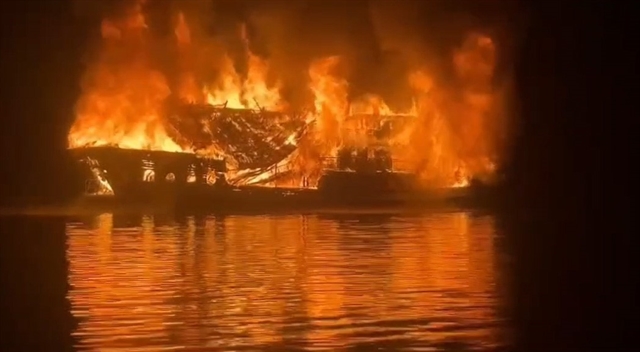 World
World

BAGHDAD — Iraqi President Barham Saleh nominated spy chief Mustafa Kadhemi on Thursday as the country's third prime minister-designate this year, moments after his predecessor ended his bid to form a government.
Kadhemi, the 53-year-old head of the National Intelligence Service, has ascended to the role as Iraq faces a budget crisis brought on by the collapse in world oil prices and the spread of the novel coronavirus.
"This is a huge responsibility, and a difficult task," Saleh said in his nominating speech, describing Kadhemi as someone with integrity and reason.
His nomination was attended by ministers, political rivals and even the United Nations' representative in Iraq, indicating widespread support for Kadhemi that neither of the previous PM-designates had enjoyed.
Moments before the ceremony, his predecessor Adnan Zurfi announced he was withdrawing his candidacy due to "internal and external reasons," without elaborating.
Zurfi had been staunchly opposed by hardline Shiite factions with close ties to Iran, which enjoys vast political and military influence in Baghdad.
Any candidate for the premiership, observers say, must have approval from Iraq's Shiite, Kurdish and Sunni communities – as well as Iran and its rival, the US.
Balancing Iran, US support
Kadhemi was able to secure that support after weeks of lobbying that peaked in a flurry of meetings in Baghdad over the last week, sources close to him said.
Among them were gatherings attended by Iranian General Ismail Qaani, who has headed Iran's powerful Quds Force foreign operations unit since a US drone strike in Baghdad killed his predecessor Qasem Soleimani in January.
One hardline Iraqi faction accused Kadhemi of conspiring with Washington to carry out the strike, but the spy chief was able to repair his ties to Iran, several political sources close to the talks said.
"Kadhemi recently travelled to Beirut to overcome this obstacle," said one source close to Lebanon's pro-Iran movement Hezbollah.
That paved the way for Qaani to endorse Kadhemi in his meetings with top Iraqi Shiite leaders in Baghdad last week, a second source confirmed.
Iraq has long feared being caught in spiralling tensions between Iran and the United States, which has blamed the Islamic republic and its allies for dozens of rocket attacks on American troops and citizens in Iraq in recent months.
Washington has also imposed crippling sanctions on Tehran, granting Iraq a series of temporary waivers to allow it to keep importing vital Iranian gas to feed its dilapidated power grid. The latest waiver will expire in late April.
David Schenker, the top US diplomat for the Middle East, accused Iran of still "trying to influence and interfere in the Iraqi political process" and called Zurfi's failure "a sad defeat."
He signalled support for Kadhemi, calling him "competent" and an "Iraqi patriot."
"If Kadhemi is an Iraqi nationalist dedicated to pursuing a sovereign Iraq, if he is committed to fighting corruption, this will be great for Iraq and this will be great for our bilateral relations," Schenker told reporters in Washington.
Third time's the charm?
With ties to both Washington and Tehran, and particularly close links to Saudi Crown Prince Mohammed bin Salman, Kadhemi may be best equipped to steer Iraq through the brewing political storm, observers say.
"It's a win for Iraq, especially in this difficult economic phase, as he could ensure the renewal of Baghdad's waiver to the US sanctions imposed on Iran," a senior political figure in the Iraqi capital said.
But first, he must submit a cabinet lineup to Iraq's 329-member parliament for a vote of confidence by May 9.
That will require a long process of consultations with various political parties, as top positions in Iraq's sectarian power-sharing system are typically doled out through horsetrading and consensus.
Neither of the previous candidates for prime minister – Zurfi or former communications minister Mohammad Allawi – had been able to reach that step.
If he succeeds, Kadhemi would replace Iraq's caretaker premier Adel Abdel Mahdi, who came into power in 2018 when political blocs opted for him over Kadhemi.
Abdel Mahdi resigned in December following months of anti-government protests, becoming the first prime minister in the country's post-2003 order to step down.
But if the intel leader fails, political sources close to the talks said, Shiite blocs would struggle to find another consensus candidate – leaving Abdel Mahdi in place for the foreseeable future. — AFP




